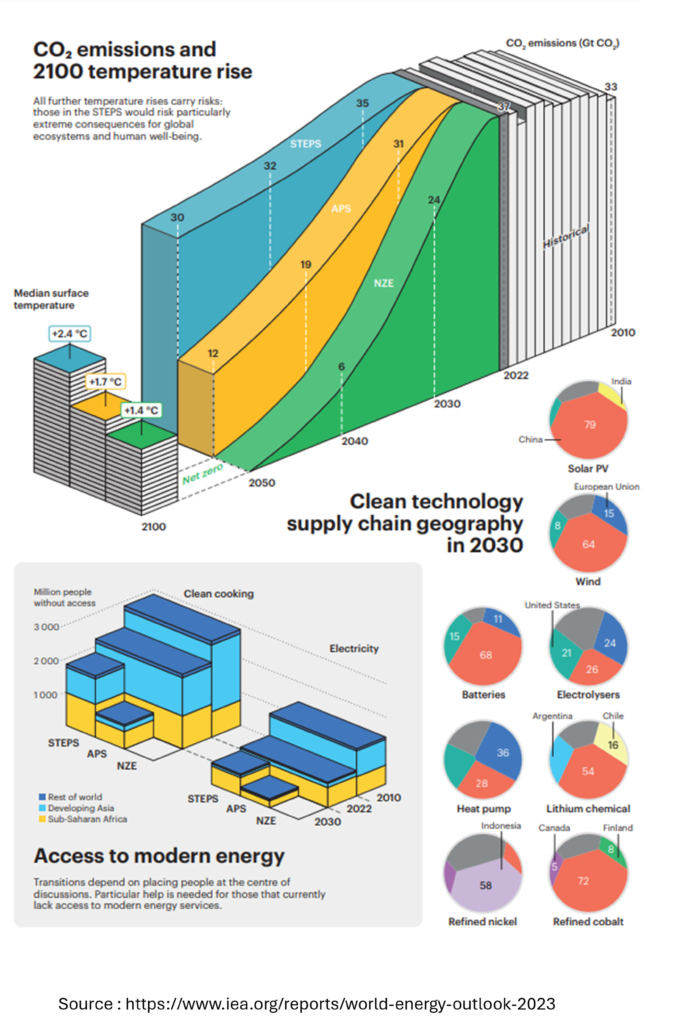Written by Riki Argyropoulou, Geoinformatics & Surveying engineer at Wattcrop.
In recent years, the world has witnessed a pivotal shift towards clean energy sources, driven by the imperative to combat climate change and mitigate environmental degradation. Beyond their environmental advantages, the adoption of renewable energy technologies brings forth a cascade of health benefits, notably in the improvement of air quality and overall public health. Recent research underscores the profound impact of clean energy on human well-being, cementing its position as a cornerstone of sustainable development.
Air pollution, primarily stemming from the combustion of fossil fuels, poses a significant threat to human health, contributing to a myriad of respiratory and cardiovascular diseases. However, as nations transition towards cleaner energy alternatives such as solar, wind, and hydroelectric power, the landscape of public health is undergoing a transformative evolution.
Recent study:
A recent study conducted by the International Energy Agency (IEA) sheds light on the tangible health benefits of embracing clean energy. Published in 2023, the research analyzed the correlation between renewable energy deployment and air quality improvements across various regions. The findings revealed a striking reduction in air pollution-related illnesses, including respiratory infections, cardiovascular diseases, and premature deaths, in areas where clean energy initiatives were implemented.

How does clean energy enhance public health?
One of the key mechanisms through which clean energy enhances public health is by curbing the emission of harmful pollutants into the atmosphere. Unlike conventional fossil fuel-based power generation, renewable energy technologies produce minimal air pollutants during operation. They reduce the concentration of toxic substances such as sulfur dioxide, nitrogen oxides, and particulate matter in the air.
Moreover, the deployment of clean energy infrastructure fosters a virtuous cycle of environmental stewardship and health promotion. By mitigating climate change and safeguarding ecosystems, renewable energy helps preserve natural habitats and biodiversity, which are fundamental determinants of human health. Additionally, the decentralization of energy production through rooftop solar panels and community-owned wind farms empowers local communities to take charge of their energy needs, fostering social cohesion and resilience.
Furthermore, the economic ramifications of clean energy extend beyond environmental conservation, transcending into the realm of public health expenditure. A recent report by the World Health Organization (WHO) highlights the substantial healthcare cost savings attributable to the reduction of air pollution-related illnesses facilitated by clean energy policies. By alleviating the burden on healthcare systems and improving workforce productivity, investments in renewable energy yield substantial returns on public health investments.
The health benefits of clean energy are not confined to developed nations but also resonate profoundly in low- and middle-income countries grappling with the dual challenges of energy poverty and environmental degradation. Innovative initiatives such as off-grid solar solutions and mini-grids offer a lifeline to underserved communities, providing access to clean and affordable energy while concurrently alleviating the health burden associated with indoor air pollution from traditional biomass fuels.
As the world stands at a critical juncture in its quest for sustainable development, we cannot overstate the imperative to prioritize clean energy as a catalyst for public health. Governments, businesses, and civil society must collaborate synergistically to accelerate the transition towards a renewable energy future, leveraging the latest scientific insights and technological innovations to safeguard the health and well-being of present and future generations.
The nexus between clean energy, air quality improvement, and public health epitomizes a paradigm shift toward holistic and sustainable development. Recent research underscores the incontrovertible link between clean energy deployment and positive health outcomes. It underscores the urgency of concerted action to harness the transformative potential of renewable energy for the betterment of humanity.

